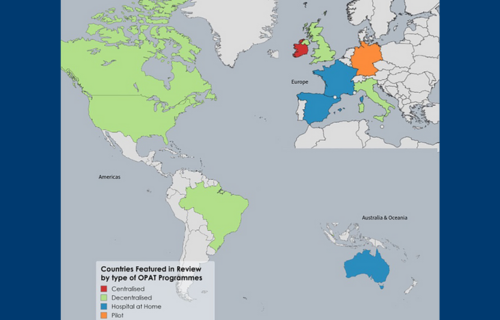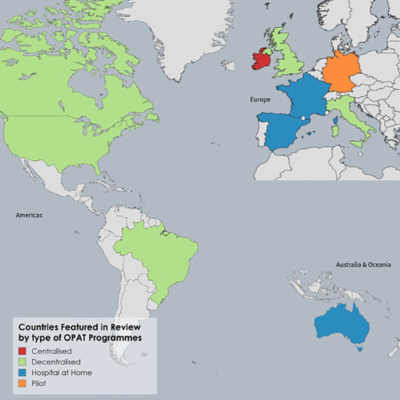Outpatient parenteral antimicrobial therapy (OPAT) across the world: a comparative analysis—what lessons can we learn?
Friday, 19 July, 2024
Share

Congratulations to UCD School of Medicine's Clinical Associate Professor Eavan Muldoon and the team involved in their published research titled, (opens in a new window)Outpatient parenteral antimicrobial therapy (OPAT) across the world: a comparative analysis—what lessons can we learn?
 Abstract
Abstract
This paper presents a comparative analysis of Outpatient Parenteral Antimicrobial Therapy (OPAT) structures and delivery options across different countries. OPAT, a cost-effective alternative to inpatient care for patients requiring IV antimicrobial therapy, has demonstrated multiple benefits such as patient satisfaction, economic cost savings, and reduced hospital-acquired infections. Despite these advantages, there is considerable international variation in OPAT use and implementation. By examining the OPAT structures of multiple countries, we aim to identify areas of variation and explore opportunities for expansion and improvement of OPAT services.
Conclusions
This paper has highlighted significant international variations in OPAT structures, delivery options and usage, emphasising the need for further examination, standardisation and improvement of these programmes. Factors contributing to these variations include healthcare system structures, cost-savings demands and regional differences. There is also a clear need to integrate AMS within any OPAT or Hospital at Home strategy. Comprehensive registries and well-designed clinical trials are needed to facilitate intercountry comparisons and determine optimal treatment durations for multiple infections.
COpAT will most likely continue to increase in the future, and integration of this delivery mechanism should be considered in all countries that operate an OPAT programme.
By identifying areas of variation and exploring opportunities for improvement, we can enhance patient outcomes, reduce healthcare costs, and optimise resource utilisation. Future research should focus on creating adaptable and scalable OPAT models that can be applicable across different healthcare systems, such as the OPAT care bundle, thereby maximising the potential benefits of outpatient antimicrobial therapy for patients, hospitals and wider society.
Read the full paper (opens in a new window)here.